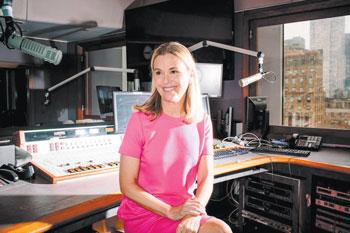 Cumulus Media, Inc. and iHeartRadio, the nation’s largest broadcasting groups, have both filed for Chapter 11 bankruptcy. Cumulus, which owns four Fayetteville radio stations, expects all operations, programming and sales to continue as normal, according to a company statement.
Cumulus Media, Inc. and iHeartRadio, the nation’s largest broadcasting groups, have both filed for Chapter 11 bankruptcy. Cumulus, which owns four Fayetteville radio stations, expects all operations, programming and sales to continue as normal, according to a company statement.
“The debt overhang left by years of underperformance remains a significant financial challenge that we must overcome for our operational turnaround to proceed,” Chief Executive Mary Berner said. The company’s bigger rival IHeartMedia Inc. is also struggling to find a solution to a significant debt pile outside of bankruptcy court.
In the fall of 1999, a year after Cumulus was founded, Cape Fear Broadcasting announced the sale of its Fayetteville and Wilmington radio stations to Cumulus Media. Between Jan. 10 and March 17 of the year 2000, a perfect storm of events drove the company’s share price down from $50 to $13 when over 30 million shares traded hands amid persistent rumors of accounting irregularities in the new radio group.
March 17, 2000, Cumulus reported a loss of share expectation. Radio station cash flow was $12.3 million versus estimates of around $17 million. In addition, the company reported that CFO Rick Bonick had left in January. It had not been officially announced, a fact that CNN Money said “roiled the already active rumor mill about accounting irregularities.”
Cumulus also claimed some of its markets did not comply with new company revenue projection policies and booked some advertising contracts for their full value rather than recognizing revenue as advertisers were billed. Those radio station groups countered that Cumulus had done that, not the radio stations.
Soon, class-action lawsuits were filed against Cumulus, charging it had artificially inflated revenues and profits in 1999. PricewaterhouseCoopers, the company’s auditors, resigned in April citing material weaknesses in Cumulus financial controls arising from the possible revenue restatements.
Lewis Dickey Jr. had taken over day-to-day operations. As the dust began to settle in April 2000, the company issued revised annual reports for 1998 and 1999 that showed minor variations in quarterly revenue and adjusted net losses for both years. The restatements had no material impact on the financials, but the nagging rumors of accounting irregularities drove a significant decrease in share price, which threatened the company’s ability to finance new acquisitions.
Dickey took full charge, and two years later the share price recovered to above the IPO price to a short-lived high of $22 on May 31, 2002. Dickey garnered some strong partners in the form of Bain Capital and Crestview. The two helped finance a series of ambitious acquisitions and partnerships, which made Cumulus a significantly larger company. But these acquisitions and Cumulus struggled in the face of slow to no radio ad growth.
Cumulus continued to suffer declines in ratings and revenues, which some attributed to loss of local personalities.
“We had lost our local programing to syndication, which angered our audience,” said former WFNC program director Jim Cooke. Loss of local audience meant a loss in advertisers, Cooke added. WFNC is one of the oldest broadcasters in North Carolina, having signed on in 1941.
Between 1998 and 2013, Cumulus Media spent about $5 billion on radio station acquisitions in mid-sized markets. Cape Fear Broadcasting Company had four radio stations in Fayetteville and two in Wilmington. They were sold to Cumulus for $50 million.
Photo: Cumulus CEO Mary Berner

 How to resolve AdBlock issue?
How to resolve AdBlock issue? 









